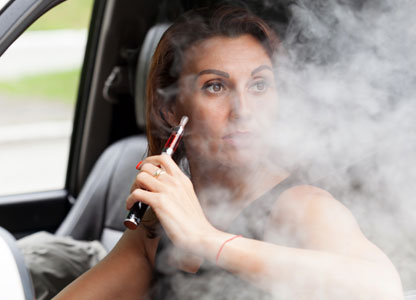New Zealand is set to officially be given smoke-free status by the end of the year, thanks to promoting vaping as a tool to quit.
According to the World Health Organisation, a country can be declared as smoke free when adult smoking rates go below five per cent.
New Zealand’s smoking rate among people aged 15 and over reached 6.8 per cent last year. The country’s government believes the percentage will dip below the five per cent mark before 2025.
The government said the country’s smoking rate has consistently declined since it launched the “Vaping to quit smoking” campaign in 2020.
“After New Zealand legalised and regulated vaping in 2020, we witnessed a remarkable 43 percent decline in daily adult smoking from 11.9 percent in 2020 to 6.8 percent in 2023,” former Massey University public health professor Marewa Glover said.
“As a result, New Zealand is now on target to achieve its goal of becoming ‘smoke-free’ by 2025.”
The New Zealand government started acknowledging studies estimating vaping to be 95 percent safer than smoking several years ago, according to the Korea Electronic Cigarette Association (KECA). It then began various public support programs to use vaping to help smokers quit.
In 2019, the New Zealand Ministry of Health launched a website called “Vaping Facts,” aimed at informing smokers that vaping is a possible way to quit cigarettes as it still provides nicotine to the smoker but with fewer of the toxins that come from burning cigarette products.
“Vaping made a significant contribution to reducing adult smoking rates and would remain ‘the prime tool’ for doing so,” New Zealand Health Minister Shane Reti said.
The KECA says Wellington’s successful campaign against smoking is a lesson.
“New Zealand’s success offers a compelling blueprint for reducing smoking rates and advancing public health,” said KECA Vice Chairman Kim Do-hwan.
“(The Korean government) must step up and incorporate similar strategies to improve public health outcomes swiftly.”
In March, New Zealand moved to reduce the appeal of vapes to young people by banning disposable vapes and most flavours.
It followed the scrapping of a world-first generational ban on smoking that would have stopped those born after January 2009 from ever being able to legally buy cigarettes.
“The rapid rise in youth vaping has been a real concern for parents, teachers, and health professionals,” Associate Health Minister Casey Costello said when announcing the changes to New Zealand’s Smokefree Environments and Regulated Products Act.
She added that reusable vapes would remain available for adults as they are “a key smoking cessation device” but that too many teenagers use disposable vapes because “they’re cheap and remain too easy to get.”



